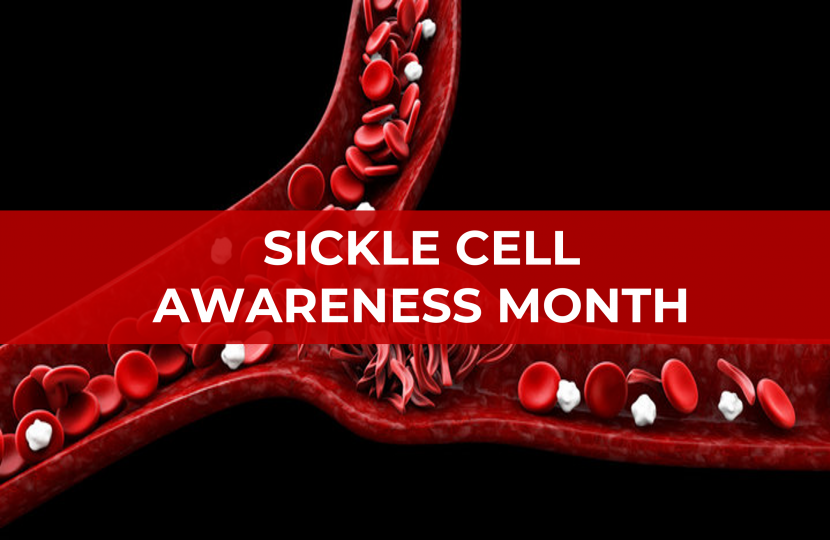
As part of my #HealthFirstKensington campaign, I am encouraging local residents to learn more about Sickle Cell Disease, and for at-risk individuals to seek screening advice from their GP.
September marks Sickle Cell Awareness Month
I am pleased to support this incredibly important cause. The UCLH have devised a useful outline of the condition's signs and symptoms below:
Sickle cell disease (SCD) is a serious inherited blood disorder where the red blood cells, which carry oxygen around the body, develop abnormally.
The disorder mainly affects people of African, Caribbean, Middle Eastern, Eastern Mediterranean and Asian origin. In the UK, sickle cell disorders are most commonly seen in African and Caribbean people.
Normal red blood cells are flexible and disc-shaped, but in SCD they can become rigid and shaped like a crescent (or sickle). The sickle-shaped cells contain defective haemoglobin (Hb), the iron-rich protein that enables red blood cells to carry oxygen from your lungs to the rest of the body. SCD is caused by a mutation in the haemoglobin, known as the ‘sickle’ mutation.
The abnormal cells are unable to move around as easily as normal shaped cells and can block blood vessels, resulting in tissue and organ damage and episodes of life threatening and severe complications.
Such episodes are known as sickle cell crises or a vaso-occlusive crises. They can last from a few minutes to several weeks. A sickle cell crisis is often described by a number of conditions. For example, it can cause an individual indescribable pain – anywhere in their body, result in a cerebrovascular accident (CVA/stroke) and acute chest syndrome (ACS – see below).
The abnormal blood cells also have a shorter lifespan and aren't replaced as quickly as normal blood cells. This leads to a shortage of red blood cells, known as anaemia. Symptoms of anaemia include lethargy (a lack of energy), tiredness and breathlessness, particularly after exercise.
Currently, treatment for SCD is limited and there is no cure except for bone marrow transplantation, which can be associated with many other risks. Experience with transplant in sickle cell is limited but specialists are becoming more skilled in the area and the number of bone marrow transplants undertaken is increasing. Treatment offered to individuals with SCD aims to be preventative and stop serious complications before they arise.
I strongly encourage at-risk individuals to seek screening advice from their GP. Genetic screening and sequencing is a vital tool, and will help you #KnowYourRisk
Full NHS guidance on the condition can be read here. If you would like more information or support, you can as ever contact me: [email protected]



